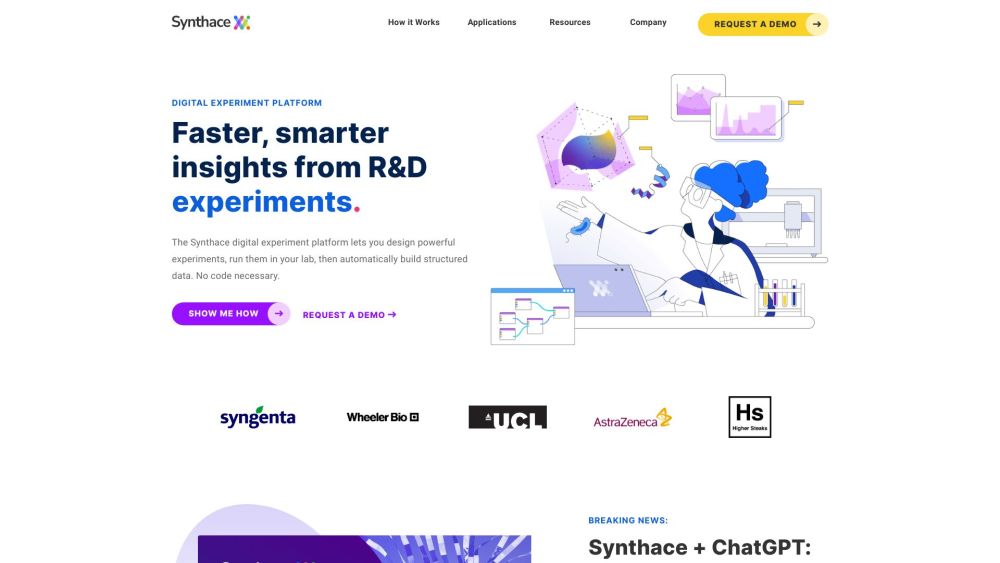The holiday shopping season has arrived, and this year, Americans embraced it like never before. The National Retail Federation reported that a staggering 200.4 million shoppers took part in spending over the five-day Thanksgiving weekend, which spans from Thanksgiving Day through Black Friday to Cyber Monday. Holiday spending is projected to reach an unprecedented $967 billion, reflecting a significant shift in consumer purchasing behavior. One of the most impactful forces driving this transformation is artificial intelligence (AI), which is reshaping the retail landscape for both businesses and consumers. Here are some insights into how AI is changing the retail game.
### How AI is Reshaping Retail During Peak Shopping Events
AI is redefining the retail experience, especially during busy shopping events like Black Friday and Cyber Monday. Real-time analytics are becoming essential, distinguishing market leaders from the competition. By utilizing shopper behavior analytics, retailers can offer personalized services and implement dynamic pricing or real-time promotions that encourage increased spending. This technology not only helps in lowering operational costs and preventing losses but also optimizes business processes—elements crucial during pivotal shopping events.
### In-Store Planning: Enhancing Customer Experience and Operational Efficiency
Shopper behavior analytics provide retailers with actionable insights, enabling them to strategically design store layouts and enhance checkout processes. This results in better product placement that drives sales and minimizes losses associated with theft. Furthermore, AI serves as a catalyst for personalized advertising, enriching the customer experience and boosting average transaction values.
Operationally, AI analyzes data from warehouses and stock rooms, allowing retailers to optimize inventory management. Enhanced logistics planning becomes vital as these operations form the backbone of successful sales during peak seasons. When implemented effectively, AI can significantly enhance both the customer journey and business efficiency, ultimately driving profitability.
### Real-Time Promotions and Decision-Making Enabled by AI
Tools such as edge-enabled smart cameras and sensors are revolutionizing how retailers operate on high-traffic shopping days. These technologies allow retailers to gather real-time insights into customer preferences and purchasing trends, fostering informed decision-making. Retailers can then target customers with tailored shelf-level advertising, dynamic prices, and timely promotions.
A prime example of this innovation is Kroger, which employs advanced AI servers connected to high-resolution cameras to elevate the self-checkout experience. The AI system actively monitors transactions and alerts customers to any discrepancies, such as scanning errors or product swaps, thus enhancing operational integrity and customer accountability.
### The Role of Predictive Analytics in Inventory Management
AI and IoT solutions such as beacons and cameras play a pivotal role in managing inventory effectively, especially as businesses gear up for significant shopping events. Stockroom analytics enables retailers to anticipate product demand accurately, ensuring shelves are well-stocked to meet customer needs. Moreover, AI-driven inventory tracking helps retailers navigate complex supply chains, ensuring timely product deliveries.
### Understanding Customer Behavior Patterns
Linking real-time stock levels with purchasing data equips retailers with the information needed to optimize store operations during peak shopping days. By analyzing patterns in customer foot traffic on occasions like Black Friday, retailers can adjust their inventory levels accordingly, preventing stock shortages during critical sales periods. This level of insight is vital for delivering a superior customer experience and maximizing profitability across multiple locations.
### Overcoming Challenges in AI Adoption
Implementing AI technologies poses several challenges for retailers, particularly during high-stakes events like Black Friday. Common obstacles include readiness to deploy AI effectively, concerns over potential job losses, and data security issues. While many retail leaders recognize the value of AI in understanding customer behavior and driving personalized recommendations, myths surrounding the complexity and costs associated with AI deployment persist.
Education on the benefits of AI, combined with cost-effective strategies for integration, is crucial for overcoming these challenges. Efforts such as incorporating edge computing with existing infrastructure can streamline the transition to AI-supported retail operations.
### Future Trends in Retail AI
Looking ahead, generative AI chatbots are set to play an increasingly vital role in enhancing customer interactions both in-store and online. These digital assistants will provide customers with accessible information and improve overall service experiences, addressing potential language barriers and access difficulties.
Furthermore, retailers are integrating digital solutions into their traditional operations, with AI and natural language processing facilitating an omnichannel approach that connects e-commerce with in-store insights. This strategy will help retailers create comprehensive customer profiles, enabling personalized experiences that cultivate loyalty.
### Leveraging AI Insights Post-Event
Finally, after major sales events like Black Friday, AI offers invaluable tools for analyzing performance and planning future strategies. By breaking down data silos and providing a clearer picture of customer behaviors, AI technologies empower retailers to refine their operations and enhance the customer experience moving forward. As projected by IDC, by 2025, 20% of the top 100 global retailers will harness AI to drive decision-making and retail planning, cementing its role as a crucial differentiator in the industry.
As retailers increasingly embrace these technologies, the future of retail looks promising, characterized by improved efficiency, enhanced customer experiences, and a more intelligent approach to sales strategy.




